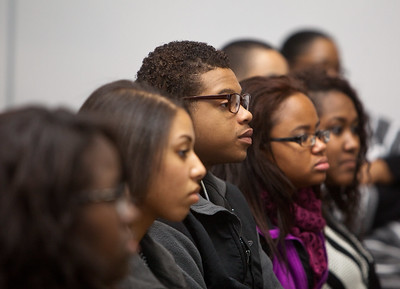COVID-19 has taken a big bite out of community college enrollment. According to recently released enrollment figures, community college enrollment has shrunk by 20% since 2019. Black students, particularly Black men, are among the largest groups to abandon community college enrollment.
And it’s not as though Black men are enrolling elsewhere. According to the Department of Education, fewer Black and Hispanic students completed the Free Application for Federal Student Aid (FAFSA). The FAFSA – usually filed in the spring – is a good leading indicator of fall higher education enrollment.
College enrollment by Black men had increased from 25% in 2000 to 33% in 2018. But the pandemic has sharply reversed those gains. Since the beginning of the pandemic, it has dropped by 20.1%. In 2020 alone, community college enrollment by Black men declined by 14%.
During the pandemic, academic advising has suffered, especially among high school students. High school counselors would ordinarily advise graduating seniors to enroll in community college classes. The shift to online learning eliminated SAT testing, college nights and other opportunities for students to consider college as part of their post-secondary plans. This is especially impactful for students of color and those who would be the first in their families to go to college.
The average community college degree has little monetary value. Two years of full-time studies might increase annual earnings by $3,000-$3,500 per year. That translates to a lifetime earnings bump of about $125,000 over 40 years, and even less for a mid-career change.
According to the Bureau of Labor Statistics, Black men earned (on average) 22.5% less per week than White men did in 2020. So, for Black men, investing in a two-year degree that doesn’t significantly increase their income is a waste of time.
Economic mobility is critical for Black students
Not all degrees are created equal, however. Certain high-demand fields, like the skilled trades and certain technology fields, can deliver the economic mobility that Black households need. Earlier this week, Lansing Community College hosted a half-day symposium to promote skilled trades, technology and public service academic programs to Black men.
Recruiting events like this serve two purposes. First, they allow a community college to recruit students in demographic groups where enrollment has significantly declined. It also enables the college to showcase educational and employment opportunities that can offer significant economic mobility upon graduation.
Nearly 13% of the population in Washtenaw County is Black. To ensure the continuing economic prosperity of the county, it is essential to engage all available workers in opportunities to become economically mobile.
Washtenaw Community College recently signed an articulation agreement with several Historically Black Colleges and Universities. While these agreements are long overdue, they also have the potential to take Black students out of our county. For Black students who intend to remain in Washtenaw County, WCC must also create meaningful educational/career opportunities like the one LCC just delivered.
Photo Credit: COD Newsroom , via Flickr



















